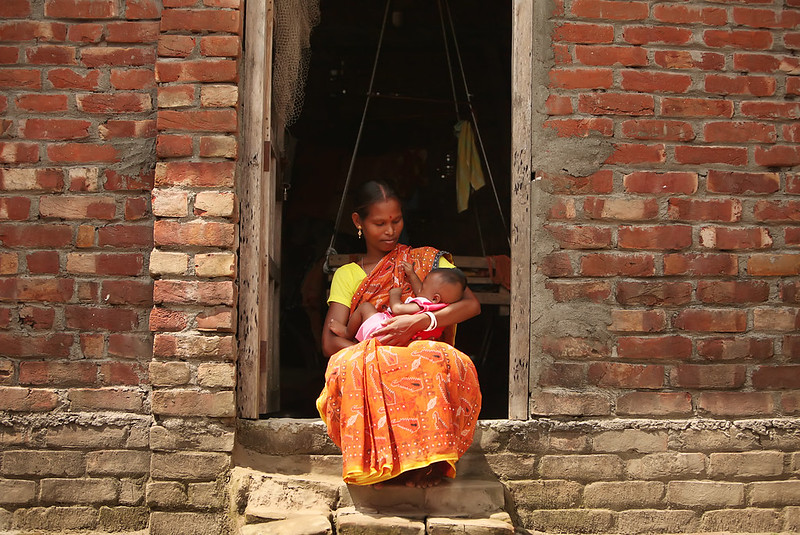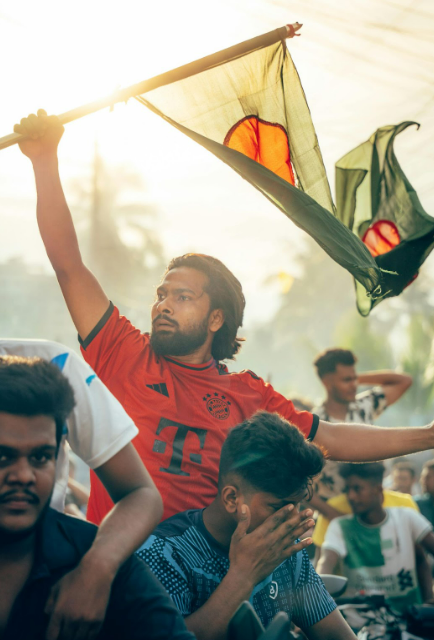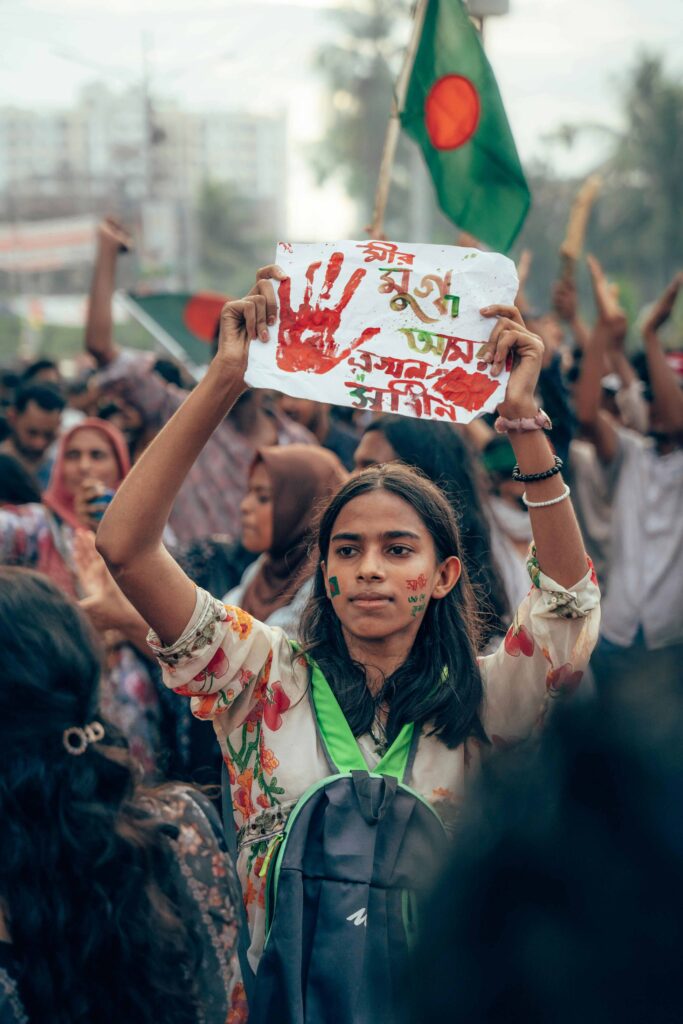- info@ghrd.org
- Mon-Fri: 10.00am - 06:00pm
Papua New Guinea: UN Welcomes Parliament’s Decision to Repeal Capital Punishment
Papua New Guinea: UN Welcomes Parliament’s Decision to Repeal Capital Punishment
Author:Roberta Amoriello & Jessica Cook
Department:Southeast Asia & Pacific
The reintroduction of the death penalty remains a big question in Papua New Guinea. Source: © Getty Images, 2022.
Introduction
In 2017, the United Nations Secretary-General António Guterres famously said “the death penalty has no place in the 21st century”. Five years later, in January 2022, the government of Papua New Guinea voted to abolish the death penalty, deeming it ineffective and contrary to Christian values. This followed several advocacy campaigns both from regional NGOs and from the United Nations (UN) which called for universal abolition. The historic decision almost marks the end of capital punishment in the Oceania region – only Togo still includes this punishment in its legislation but is considered a de facto abolitionist state as it has not executed any prisoners for decades. Papua New Guinea’s decision can be seen as part of a wave of abolition in multiple states in 2022, and it also serves as a reminder that “170 out of 193 UN Member States have either abolished the death penalty or do not practice it” (Office of the High Commissioner for Human Rights, 2022).
International Human Rights framework for capital punishment
The United Nations Human Rights Council made it clear in its 51st session in October 2022 that it encourages the universal abolition of the death penalty. It pointed the finger at countries such as Singapore for its recent executions of drug-offenders, as well as Belarus, which amended its criminal code to include death penalty as a punishment for attempts to commit terrorism or murder against public officials. However, in the annual report of the UN Secretary General concerning the death penalty, Papua New Guinea was congratulated for its recent abolition, along with Sierra Leone, Central African Republic, and Kazakhstan (World Coalition against death penalty, 2022).
From an international law perspective, the death penalty is not prohibited seeing as a significant minority of states, including the United States and China, still practice this type of punishment. However, the International Covenant on Civil and Political Rights (hereon ICCPR), which Papua New Guinea ratified on July 21st, 2008, lays out substantive, procedural and personal limitations to this practice. These include the fact that the death penalty must be limited to the most ‘serious crimes’, the non-retroactivity of such crimes and the prohibition of reintroducing the death penalty in a State that previously abolished it (this was the case in Papua New Guinea in 1991). In terms of procedural limitations, the ICCPR states that the death penalty can only be imposed after a fair trial, and that the process must cause the minimum possible suffering. Finally, in terms of personal limitations, Articles 6 and 4 of the Convention on the Rights of the Child, which Papua New Guinea ratified in 1993, states that the death penalty cannot be imposed on individuals under the age of 18.
Evolution of death penalty legislation in Papua New Guinea
The death penalty in Papua New Guinea (hereon PNG) was abolished in 1970 in the lead-up to the country’s independence from Australia’s colonial rule, with the last execution being in 1954. After two decades since it was finally abolished, in 1991, capital punishment was reintroduced in the Guinean legal system through an amendment to the Criminal Code of 1974. On August 25th, 1991, the PNG Parliament approved, with 48 to 19 votes, the reintroduction of the death penalty for willful murder. Its imposition was not stated as mandatory but at the discretion of the judge. However, only two years later, the Public Prosecutor introduced the guidelines for the imposition of the death penalty. The right of appeal was granted to individuals sentenced to death. The first avenue of appeal was via an application to the Supreme Court within 40 days of sentencing, and, in case this application was unsuccessful, an appeal could be made to the Advisory Committee on the Power of Mercy. The Committee, appointed by the Minister of Justice and comprising a church minister, a lawyer, a community worker, a medical practitioner with experience in psychiatry and a Member of Parliament, oversaw making a recommendation to the National Executive Council Cabinet, chaired by the Prime Minister, regarding whether mercy should have been granted. The recommendation was then passed to the head of State, the Governor General, with whom the final decision rested. Should the death sentence be upheld, it was the head of State to fix the date and time for the execution (Amnesty International, 1996).
Discussions regarding its restoration had been undergoing for years when the decision was taken due to the rising rate of violent crimes in the country, with the then Prime Minister Rabbie Namaliu referring to the need for capital punishment to deter criminals. In addition to the worsening of law-and-order problems and the frequency of crimes such as rape and murder, the decision was justified on the grounds that it had strong popular support. According to Amnesty International, the notion of popular support, which can never justify a human rights violation as the introduction of the death penalty, was used to justify the government’s decision to reintroduce capital punishment and did not reflect the real scenario, characterized by many opposing opinions not considered (Amnesty, 1996).
More than two decades after its reintroduction, the government amended the Criminal Code Act (Amendment No 6 of 2013) by introducing three additional forms of serious crimes punishable by death: killings related to accusations of sorcery, aggravated rape, and robbery. Also, this time, the amendments were made in response to rising levels of crimes in these categories, with one incident in particular prompting the government to act, the brutal murder of Leniata Kepari, who was tortured and burned alive after false accusations of her killing a six-year-old child through sorcery. News regarding this event was spread worldwide and it was widely condemned (Sakai, 2019).
The abolition in January 2022
Despite its reintroduction and subsequent amendments, no executions were carried out in PNG, which then was given the status of “abolitionist de facto”, a definition used by the United Nations to describe countries that, although having a provision for death penalty, have not carried out executions during the past ten years. However, internationally, Papua New Guinea has always voted against or abstained from UN General Assembly resolutions calling for a moratorium on the use of the death penalty (Sakai, 2019).
Since 1991, international organisations, such as Amnesty International and Human Rights Watch, have urged PNG to abolish capital punishment, considering it not only as a violation of international treaties to which PNG is a signatory, such as Article 6 of the ICCPR, but also a contradiction to its own Constitution, which prohibits torture as well as inhuman and degrading treatments, to which the death penalty can be assimilated (Sakai, 2019).
The PNG Council of Churches argued that PNG is a Christian country, and as such, should not impose rules against biblical principles. After several years of unsuccessful attempts to implement capital punishment, other than on paper, the awaited abolition of death penalty was based on those religious principles (Equal Justice Initiative, 2022).
Finally, on January 20th, 2022, the PNG Parliament voted to repeal the country’s death penalty status, considering it, on the one hand, inefficient in deterring serious crime and offences and, on the other hand, against the Christian notion of “thou shall not kill”, as stated by the current Prime Minister James Marape (Togiba, 2022).
Conclusion
Therefore, considering the above-mentioned developments and explanations of the abolition of the death penalty in Papua New Guinea, it will be interesting to see which current retentionist states follow suit. In 2022, fifty countries still carry out the death penalty, with six countries making up the most executions (China, Iran, Saudi Arabia, Vietnam, Iraq, and Egypt). As previously mentioned, there is growing international pressure for states to abolish the death penalty (Death Penalty Information Centre, 2022b).. Just recently, in October 2022, two United Nations experts (Dr. Alice Jill Edwards and Morris Tidball-Binz) made an official statement saying that:
Although the death penalty is permitted in very limited circumstances under international law, the reality remains that in practice it is almost impossible for States to impose capital punishment while meeting their obligations to respect the human rights of those convicted (Death Penalty Information Centre, 2022a).
Bibliography
Amnesty International. (1996). Papua New Guinea – The death penalty: not the solution. Amnesty International. Retrieved on November 28, 2022 from https://www.amnesty.org/en/wp-content/uploads/2021/06/asa340011996en.pdf
Death Penalty Information Centre. (2022 a, October 21). U.N. Experts: ‘Almost Impossible’ for Countries to Administer Death Penalty without Violating Defendants’ Human Rights. Death Penalty Information Centre. Retrieved on November 28, 2022 from https://deathpenaltyinfo.org/news/u-n-experts-almost-impossible-for-countries-to-administer-death-penalty-without-violating-defendants-human-rights
Death Penalty Information Centre. (2022 b). Executions Around the World. Death Penalty Information Centre. Retrieved on November 28, 2022 from https://deathpenaltyinfo.org/policy-issues/international/executions-around-the-world
Equal Justice Initiative. (2022, July 2). Christian values lead Papua New Guinea to abolish death penalty. Equal Justice Initiative. Retrieved on November 28, 2022 from https://eji.org/news/christian-values-lead-papua-new-guinea-to-abolish-death-penalty/
Office of the High Commissioner for Human Rights. (2022, January 21). Comment by UN High Commissioner for Human Rights Michelle Bachelet on Papua New Guinea’s repeal of the death penalty. OHCHR. Retrieved on November 28, 2022 from https://www.ohchr.org/en/2022/01/comment-un-high-commissioner-human-rights-michelle-bachelet-papua-new-guineas-repeal-death
Sakai, M. (2019, December 19). Capital punishment in Papua New Guinea: a review. DevPolicy Blog. Retrieved on November 28, 2022 from https://devpolicy.org/capital-punishment-in-papua-new-guinea-a-review-20191219/
Togiba, L. (2022, January 22). Papua New Guinea repeals death penalty 30 years after reintroduction. The Guardian. Retrieved on November 28, 2022 from https://www.theguardian.com/world/2022/jan/21/papua-new-guinea-repeals-death-penalty-30-years-after-reintroduction
World Coalition Against the Death Penalty. (2022, October 24). Abolition of the death penalty at the United Nations Human Rights Council 51st session. World Coalition Against the Death Penalty. Retrieved on November 28, 2022 from https://worldcoalition.org/2022/10/24/abolition-of-the-death-penalty-at-the-united-nations-human-rights-council-51st-session/
Search

Article
Legislation and Law Enforcement Regulating The Chain of Gender-based Violence: Child Marriage and Human Trafficking
Young women and girls are more likely trafficked and vulnerable to exploitation in marriage. The chain of child marriage and trafficking is restricted by international conventions and domestic laws of Bangladesh. This article addresses loopholes in legislation and law enforcement regulating such gender-based violence in Bangladesh.
GHRD
0 Comments

Article
Bangladesh’s Current State of Human Rights
This article focuses on the current state of human rights in Bangladesh since the interim government took over in August 2024. The country is undergoing a political transition, and monitoring human rights is crucial in ensuring the country does not slip back into repressive rule.
GHRD
0 Comments

Article
Female Political Representation in Post-Liberation Bangladesh: Dynamics, Challenges and the Impact of Women’s Rights Movements
Bangladesh has historically advanced its female parliamentary representation, yet the progress has stagnated in recent years. The article explores the structural barriers, impact of women’s movements and prospects for change amid the current political crisis.
GHRD
0 Comments
ABOUT US
Global Human Rights Defence (GHRD) is a dedicated advocate for human rights worldwide. Based in The Hague, the city of peace and justice. We work tirelessly to promote and protect the fundamental rights of individuals and communities. Our mission is to create a more just and equitable world, where every person's dignity and freedoms are upheld. Join us in our journey towards a brighter future for all.
ALL CONTACTS
-
Riviervismarkt 5-unit 2.07
2513 AM The Hague - Phone +31 62 72 41006
- info@ghrd.org
-
Mon-Fri: 10:00am - 06:00pm
Saturday & Sunday Closed - Bank Details: NL69 ABNA 0417 9430 24
- Chambers of commerce NR. 27261631
SUBSCRIBE
Stay informed and be part of change - Subscribe to our newsletter today!
- Copyright of ghrd 2023. Powered by Desmantle Studio.


Wow! Finally I got a weblog from where I can really obtain valuable data concerning my study and knowledge.